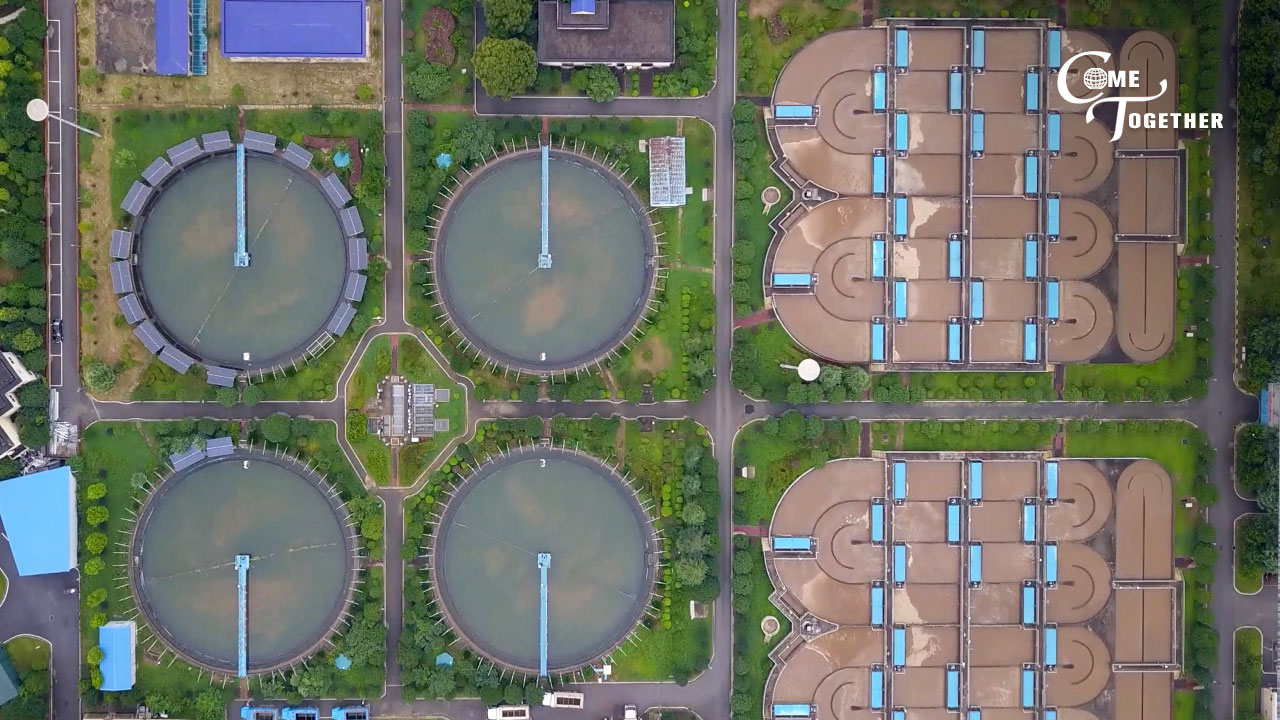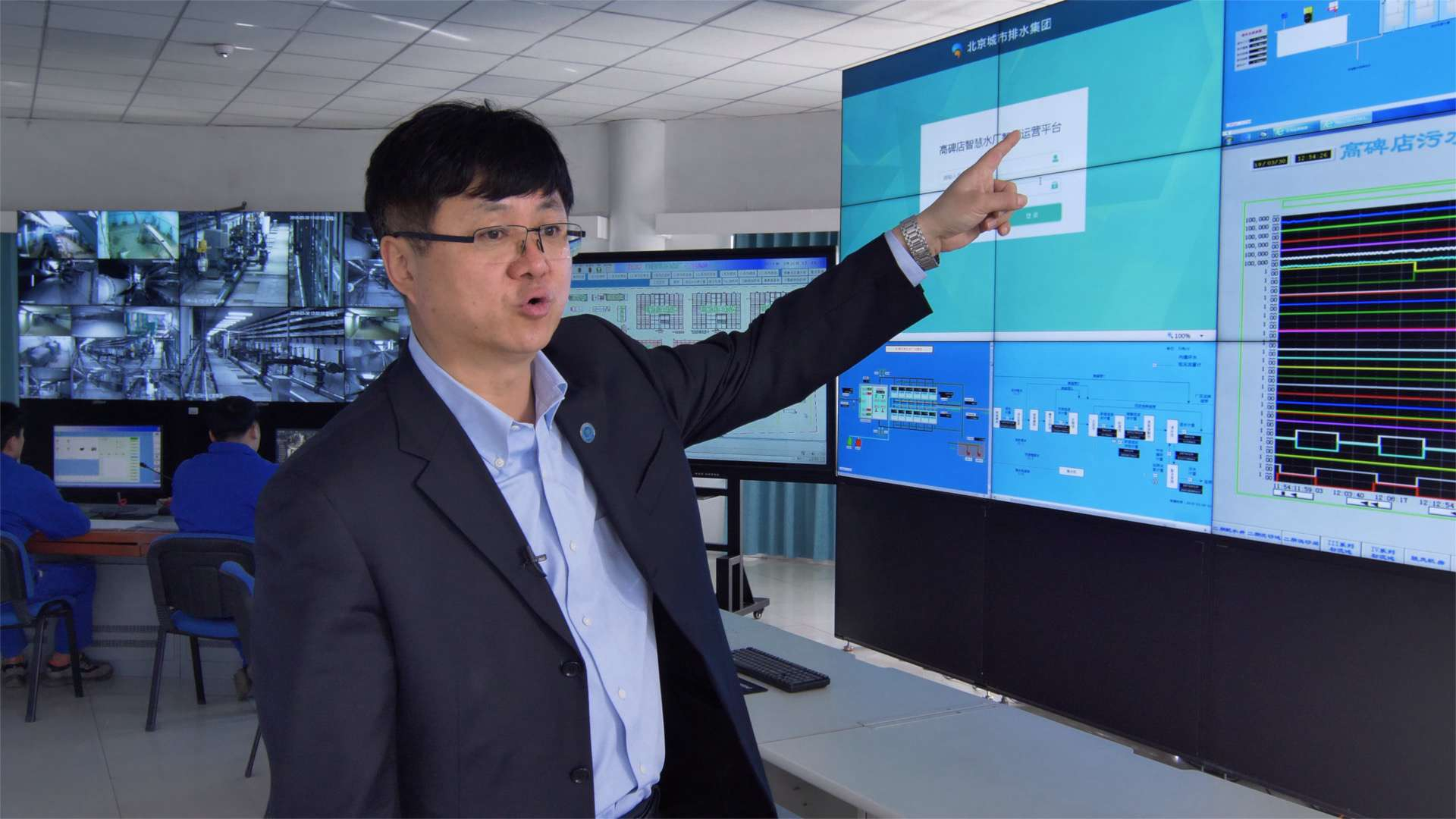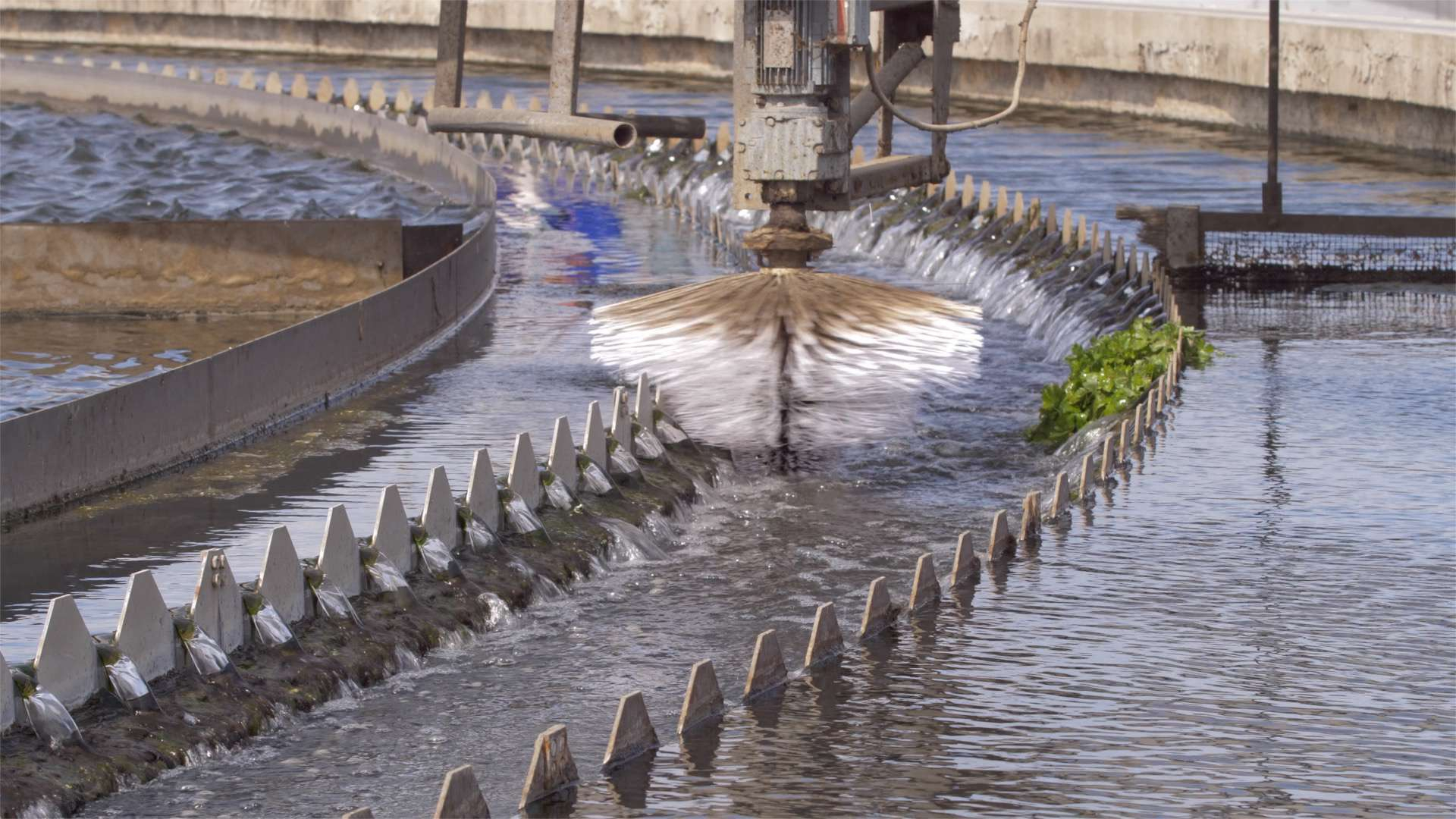04:31

Editor's note: October 31 marks World Cities Day. In this episode of "Come Together," CGTN looks at how Chinese capital Beijing manages its urban wastewater with the help of artificial intelligence.
Beijing, the capital city of China, has over 21 million permanent residents. On average, each resident produces some 150 liters of wastewater every day.
"Wastewater is not only harmful to the environment, but also to human health," Qiao Junfei, professor with the Beijing University of Technology, told CGTN.
According to "Progress on Safe Treatment and Use of Wastewater," which was jointly released by the United Nations and the World Health Organization, among the 79 mostly high- and middle-income countries, excluding much of Asia and Africa, 59 percent of domestic wastewater was collected and safely treated. The untreated 41-percent posed risks to the environment and public health. Hence, urban wastewater treatment plays a vital role in preserving ecosystems and safeguarding human health.
However, the smooth running of such plants remains a global challenge. Fu Wei, an engineer with Beijing Drainage Group Co., Ltd., still remembers an incident from the Spring Festival 2012.
"When sludge bulking occurs, sludge begins to float on the wastewater," Fu recalled. "To prevent floating sludge from running into the river with treated water, all of our 40 plus staff had to collect the floating sludge manually. We worked nonstop during the Spring Festival holiday."
How can the uncertainties in wastewater treatment be dealt with in real time? Qiao is a pioneer in applying smart control technology to urban wastewater treatment.

Qiao Junfei with the Beijing University of Technology explains the operation system empowered by AI and big data technology inside a wastewater plant in Beijing. /CGTN Photo
Qiao Junfei with the Beijing University of Technology explains the operation system empowered by AI and big data technology inside a wastewater plant in Beijing. /CGTN Photo
"The advantage of our system is that it is the first of its kind to use artificial intelligence (AI) and big data technologies to achieve smart operations of water plants," Qiao noted.
For example, if a wastewater treatment plant is designed with the capacity to treat one million tons of wastewater, and currently it receives only 800,000 tons of wastewater, the control system will operate at its designed setting by using the default amount of air and chemicals. With the smart control system invented by Qiao's team, the plant can automatically modify the air and chemical input to match the amount needed for treating this lower amount, thereby reducing energy and chemical consumption. In other words, the technology equips the wastewater treatment plant with a "smart brain," enabling it to run smartly and efficiently. Results show that the plant reduced the running cost by saving over six percent of electricity and over 10 percent of chemical agents.
According to Qiao, the technology is already being used in more than 50 wastewater treatment plants nationwide, creating an economic value worth 200 million yuan (about 28.4 million U.S. dollars) per year. A treatment plant based in Ecbatana, western Iran, for example, has already applied the technology. "So if the AI-empowered technology could be applied globally, the economic value could be unmeasurable," Qiao said.

A wastewater plant in Beijing. /CGTN Photo
A wastewater plant in Beijing. /CGTN Photo
Since 2013, Beijing has carried out two action plans on wastewater treatment. The treatment percentage increased from 83 to 94 percent. By 2020, the figure is expected to hit over 95 percent citywide, with 99 percent in downtown area.
This practice is a highlight of China's efforts to address urban wastewater treatment. According to the national planning, by the end of 2020, wastewater treatment facilities will be accessible nationwide; urban wastewater treatment rate would hit 95 percent.
In its 2030 Agenda for Sustainable Development, the United Nations has set a goal to ensure availability and sustainable management of water and sanitation for all. Together with the rest of the world, China is committed to creating harmony between humankind and the environment.
"We hope to use as little water resources as possible and make it as clean as we can, so it can be saved for the future generations," Fu said.